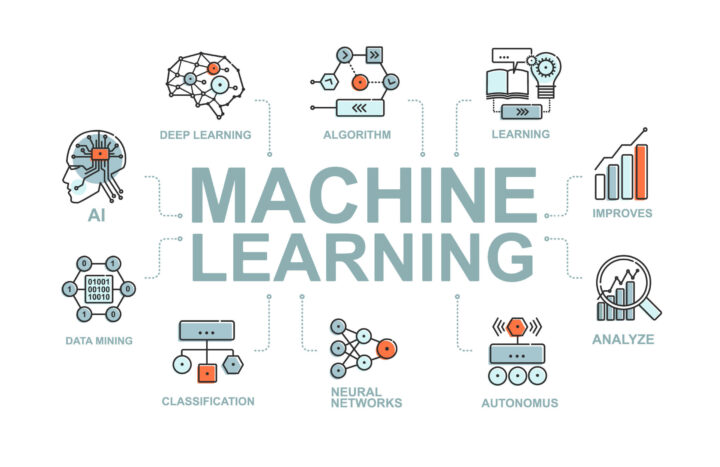Machine learning is a rapidly growing field that is revolutionizing the way we live and work. It is a subfield of artificial intelligence that involves the use of algorithms and statistical models to enable computers to learn and make decisions without explicit programming. In other words, machine learning allows computers to learn from data and improve their performance over time, without being explicitly programmed to do so.
What Is Machine Learning?
Machine learning is based on the idea that machines can learn from data and experience, rather than being explicitly programmed to perform a specific task. This is achieved by providing the machine with a large dataset and allowing it to learn patterns and relationships within the data. The machine is then able to use this knowledge to make predictions or decisions based on new data.
There are different types of machine learning, including supervised learning, unsupervised learning, and reinforcement learning.
Supervised learning involves training a machine on a labeled dataset, where the desired output is already known. This type of machine learning is used to classify data or predict outcomes based on patterns in the data.
Unsupervised learning involves training a machine on an unlabeled dataset, where the desired output is not known. This type of machine learning is used to discover patterns and relationships in the data.
Reinforcement learning involves training a machine through trial and error, by providing it with rewards for completing tasks correctly and punishments for making mistakes. This type of machine learning is used to teach machines to take action in order to maximize a reward.
How Is Machine Learning Changing the World?
Machine learning is having a significant impact on many industries and is changing the way we live and work. Some examples of how machine learning is changing the world include:
- Healthcare: Machine learning is being used to analyze medical data and make diagnoses, predict the likelihood of certain diseases, and recommend treatment options. It is also being used to analyze large amounts of data to identify patterns and trends, which can help improve patient outcomes and reduce healthcare costs.
- Finance: Machine learning is being used to analyze financial data and make investment recommendations, detect fraudulent activity, and predict market trends.
- Retail: Machine learning is being used to personalize shopping experiences, predict customer behavior, and optimize inventory management.
- Transportation: Machine learning is being used to optimize routing and scheduling in transportation systems, predict maintenance needs, and improve safety.
- Manufacturing: Machine learning is being used to optimize production processes, predict equipment failures, and improve quality control.
- Education: Machine learning is being used to personalize learning experiences, adapt to individual student needs, and improve student outcomes.
- Agriculture: Machine learning is being used to optimize crop yields, predict weather patterns, and improve irrigation and pest control.
The Future of Machine Learning
As machine learning continues to advance, it has the potential to transform many aspects of our lives and change the way we work and interact with technology. Some potential future applications of machine learning include:
- Autonomous vehicles: Machine learning could be used to enable self-driving cars, trucks, and other vehicles to navigate and make decisions in real-time.
- Predictive maintenance: Machine learning could be used to predict when equipment is likely to fail, allowing for proactive maintenance and reducing downtime.
- Personal assistants: Machine learning could be used to create personal assistants that can anticipate our needs and make recommendations based on our past behavior.
- Disaster response: Machine learning could be used to predict and respond to natural disasters, such as earthquakes and hurricanes, in real-time.
- Environmental monitoring: Machine learning could be used to analyze data from sensors and satellite imagery to monitor.
It is important to note that machine learning is not a replacement for human intelligence and decision-making, but rather a tool that can assist and enhance human capabilities. In order for machine learning to be effective, it must be used in conjunction with human expertise and oversight.
As machine learning continues to advance and become more integrated into our daily lives, it is important for individuals and organizations to understand and consider the ethical implications of using this technology. This includes issues such as data privacy, bias in algorithms, and the potential for automation to replace jobs.
Conclusion
In conclusion, machine learning is a rapidly growing field that is changing the way we live and work. It has the potential to transform many industries and has already had a significant impact on healthcare, finance, retail, transportation, manufacturing, education, and agriculture. While machine learning has many benefits, it is important to consider the ethical implications of using this technology and ensure that it is used in a responsible and transparent manner.
Links:
- Introduction to Machine Learning – Coursera course on machine learning fundamentals
- Ethics and Society – edX course on the ethical and societal implications of emerging technologies
- AI and Ethics: The Risks and Rewards of Our New Intelligence – TED Talk on the potential risks and rewards of artificial intelligence
Want to read more about Mahine Learning and AI visit my blog

